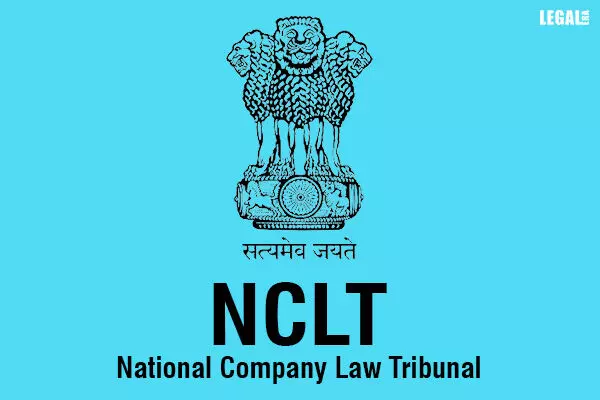- Home
- News
- Articles+
- Aerospace
- Artificial Intelligence
- Agriculture
- Alternate Dispute Resolution
- Arbitration & Mediation
- Banking and Finance
- Bankruptcy
- Book Review
- Bribery & Corruption
- Commercial Litigation
- Competition Law
- Conference Reports
- Consumer Products
- Contract
- Corporate Governance
- Corporate Law
- Covid-19
- Cryptocurrency
- Cybersecurity
- Data Protection
- Defence
- Digital Economy
- E-commerce
- Employment Law
- Energy and Natural Resources
- Entertainment and Sports Law
- Environmental Law
- Environmental, Social, and Governance
- Foreign Direct Investment
- Food and Beverage
- Gaming
- Health Care
- IBC Diaries
- In Focus
- Inclusion & Diversity
- Insurance Law
- Intellectual Property
- International Law
- IP & Tech Era
- Know the Law
- Labour Laws
- Law & Policy and Regulation
- Litigation
- Litigation Funding
- Manufacturing
- Mergers & Acquisitions
- NFTs
- Privacy
- Private Equity
- Project Finance
- Real Estate
- Risk and Compliance
- Student Corner
- Take On Board
- Tax
- Technology Media and Telecom
- Tributes
- Viewpoint
- Zoom In
- Law Firms
- In-House
- Rankings
- E-Magazine
- Legal Era TV
- Events
- Middle East
- Africa
- News
- Articles
- Aerospace
- Artificial Intelligence
- Agriculture
- Alternate Dispute Resolution
- Arbitration & Mediation
- Banking and Finance
- Bankruptcy
- Book Review
- Bribery & Corruption
- Commercial Litigation
- Competition Law
- Conference Reports
- Consumer Products
- Contract
- Corporate Governance
- Corporate Law
- Covid-19
- Cryptocurrency
- Cybersecurity
- Data Protection
- Defence
- Digital Economy
- E-commerce
- Employment Law
- Energy and Natural Resources
- Entertainment and Sports Law
- Environmental Law
- Environmental, Social, and Governance
- Foreign Direct Investment
- Food and Beverage
- Gaming
- Health Care
- IBC Diaries
- In Focus
- Inclusion & Diversity
- Insurance Law
- Intellectual Property
- International Law
- IP & Tech Era
- Know the Law
- Labour Laws
- Law & Policy and Regulation
- Litigation
- Litigation Funding
- Manufacturing
- Mergers & Acquisitions
- NFTs
- Privacy
- Private Equity
- Project Finance
- Real Estate
- Risk and Compliance
- Student Corner
- Take On Board
- Tax
- Technology Media and Telecom
- Tributes
- Viewpoint
- Zoom In
- Law Firms
- In-House
- Rankings
- E-Magazine
- Legal Era TV
- Events
- Middle East
- Africa
NCLT Delhi Accepts Petition, Initiates Insolvency Proceedings for Imperia Structures Ltd.

NCLT Delhi Accepts Petition, Initiates Insolvency Proceedings for Imperia Structures Ltd.
The National Company Law Tribunal (NCLT), New Delhi Bench, consisting of Mahendra Khandelwal (Judicial Member) and Rahul Bhatnagar (Technical Member), has initiated the Corporate Insolvency Resolution Process (CIRP) against Imperia Structures Ltd. This action was taken in response to a petition filed in the case of Chirag Jain & Ors. v Imperia Structures Ltd.
Imperia Structures Ltd. had undertaken a real estate project called “Imperia Byron/Mindspace” located in Sector-62, Gurgaon, Haryana.
Imperia Structures Ltd., the Corporate Debtor in question, is involved in the business of real estate development. The company had launched a project named “Imperia Byron/Mindspace,” which was located in Sector-62, Gurgaon, Haryana. This project was introduced under a scheme that offered an 'Investment Return' combined with a 'Guaranteed Assured Return' to prospective buyers.
The representation made to buyers was that if they made upfront payments for the units they booked, the Corporate Debtor would commit to providing a monthly guaranteed assured return until the units were leased out. After leasing the units to the intended tenants, the Corporate Debtor would then continue to pay the assured rental income to the buyers.
Relying on these representations, Chirag Jain, along with other Financial Creditors, reserved units in the Imperia Byron/Mindspace Project in 2011-12. For each unit they booked, separate Memorandums of Understanding (MoUs) were executed with the Corporate Debtor.
The Corporate Debtor failed to meet its obligations by defaulting on the assured returns as per the MoUs with the Financial Creditors. In response to this default, the Financial Creditors filed a petition under Section 7 of the Insolvency and Bankruptcy Code, 2016 (IBC), seeking the commencement of the Corporate Insolvency Resolution Process (CIRP) against the Corporate Debtor due to a default amounting to ₹3,67,93,375.
The Bench noted that the Corporate Debtor had indeed defaulted on a debt that was both due and payable, and this default exceeded the minimum pecuniary threshold specified in Section 4(1) of IBC. Consequently, the petition filed under Section 7 of the IBC was accepted, and the initiation of CIRP against the Corporate Debtor was authorised.
Gaurav Katiyar has been designated as the Interim Resolution Professional (IRP) to oversee the Corporate Insolvency Resolution Process (CIRP) in this case.



